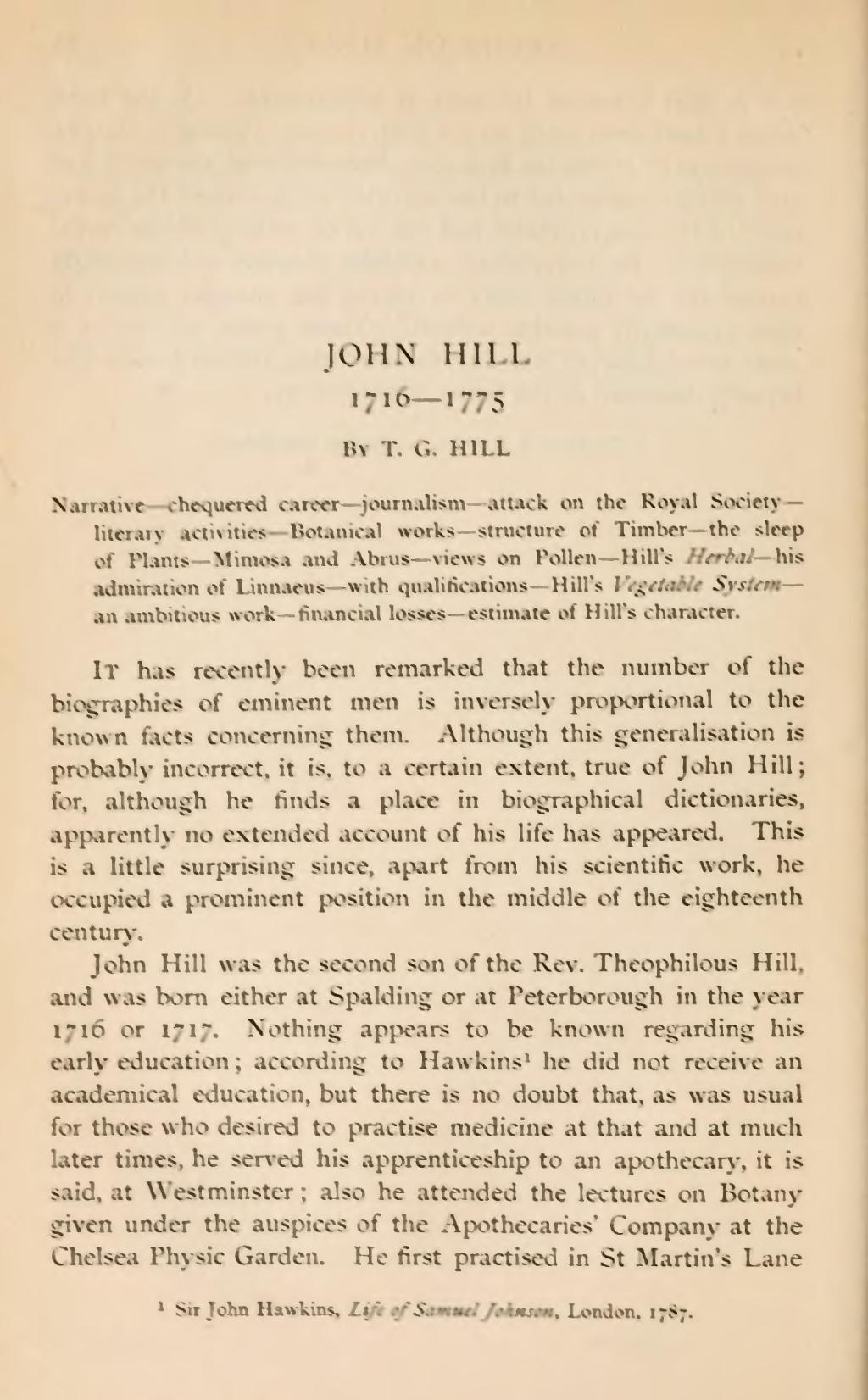JOHN HILL
1716—1775
By T. G. HILL
Narrative—chequered career—journalism—attack on the Royal Society—literary activities—Botanical works—structure of Timber—the sleep of Plants—Mimosa and Abrus—views on Pollen—Hill's Herbal—his admiration of Linnaeus—with qualification—Hill's Vegetable System—an ambitious work—financial losses—estimate of Hill's character.
It has recently been remarked that the number of the biographies of eminent men is inversely proportional to the known facts concerning them. Although this generalisation is probably incorrect, it is, to a certain extent, true of John Hill; for, although he finds a place in biographical dictionaries, apparently no extended account of his life has appeared. This is a little surprising since, apart from his scientific work, he occupied a prominent position in the middle of the eighteenth century.
John Hill was the second son of the Rev. Theophilous Hill, and was born either at Spalding or at Peterborough in the year 1716 or 1717. Nothing appears to be known regarding his early education; according to Hawkins[1] he did not receive an academical education, but there is no doubt that, as was usual for those who desired to practise medicine at that and at much later times, he served his apprenticeship to an apothecary, it is said, at Westminster; also he attended the lectures on Botany given under the auspices of the Apothecaries' Company at the Chelsea Physic Garden. He first practised in St Martin's Lane
- ↑ Sir John Hawkins, Life of Samuel Johnson, London, 1787.
